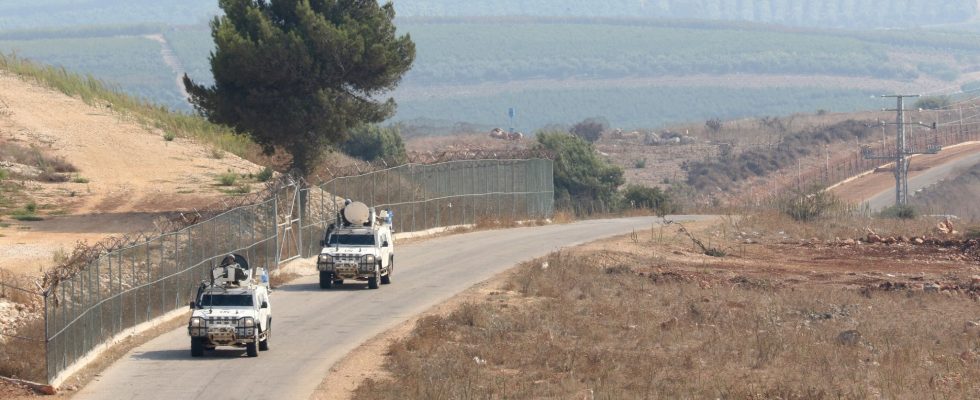Hassib Abdel Hamid went down at dawn like every morning for a week to his fields to harvest the olives. “Life goes on,” he said, “we’re used to it.” His village, Kfarhamam, is located just a few kilometers from the border and the occupied farms of Chebaa (disputed territory between Lebanon and the Golan Heights). It was from this region of Arkoub that Hezbollah launched a salvo of rockets into Israeli territory on Sunday October 8, “as a sign of solidarity” with “the resistance and the Palestinian people”, after the launch the day before by Hamas of an attack of unprecedented scale against the Jewish state. Despite the countless wars which have exhausted South Lebanon and left serious consequences, this former inmate of Khiam prison (in the hands of the Israeli army until the liberation of the South in 2000), like many inhabitants of this region, says it supports “any intervention against the occupation” and refuses, for the moment, to leave.
In five days, exchanges of fire have been recorded at different points of the border, and the tension could not be more palpable across the country. In the southern suburbs of Beirut, a stronghold of Hezbollah, residents follow the news on television at home, in cafes or are glued to their cell phones. During the last war in 2006, Israeli bombings destroyed entire sections of the area. Hassan, 25, was very young but he still remembers it. This young anti-Hezbollah Shiite refuses to allow the Islamist organization to drag the country into a new war. In Dahiyé, where he lives, and where photos of “martyrs” and the party leader, Hassan Nasrallah, adorn every street, the population seems strangely serene. But not him, since he left Dahiyé since Tuesday for a small rented apartment in Naccache, five minutes from the American embassy.
Leave the country
Laura returned to settle in Lebanon last Friday, the day before the deadly Hamas incursion, after two years spent in Dubai. Her family had to flee the Burj al-Barajné district which was shelled in 2006, so she is on the alert, closely following the analyzes which are coming out on the probabilities that Hezbollah will launch into battle. She also prepared a bag, “just in case”.
In a bakery in Tayyouné, the former demarcation line during the civil war, a saleswoman says she is worried by the possibility of a front opening at the border. His boss interrupts him sharply. “Here, we don’t fear war,” she says, the proof: her bread sales “have not increased.”
“No one will help us”
A sign that official Lebanon does not wish to be drawn into a war, Prime Minister Najib Mikati called on all political forces to exercise restraint on Thursday evening. Two days earlier, Gebran Bassil, the leader of the Free Patriotic Movement, a party allied to Hezbollah, had gone further by affirming “to reject any use of Lebanese terrain as a launching pad for military operations by a non-Lebanese party”, in reference to Palestinian forces present in the territory.
In the meantime, the Lebanese are still preparing for this eventuality. In some supermarkets in the capital, shelves are emptying and the fruit and vegetable stalls at the entrance have given way to stands where large bags of rice, flour, oil or lentils are stored. Mona, mother of four boys, including two teenagers, has filled her shopping cart to the brim with non-perishable goods, and heads towards the checkout, ignoring the smirks of customers around her. “It’s stronger than me, I’m a child of war. I prefer not to lack anything,” she says.
At Beirut airport, where the army is deployed more than usual, there is not yet panic. However, Lebanese and tourists preferred to leave the country as a precautionary measure. This is the case of Léa, a French woman who came to do an end-of-study internship in Beirut. “I was supposed to stay until December but my parents are completely scared. They are especially afraid that the airport will be targeted first so they booked me a return ticket,” says the young woman two hours before takeoff. Alexandre, a retired Lebanese professor, canceled his trip in the opposite direction. “My partner had to come with me for the first time and I was happy to show her my country, despite all the difficulties it is going through,” he says. “I am very worried about my family and my friends. I fear the same scenario as in 2006, except that this time, no one will come to our aid”…
